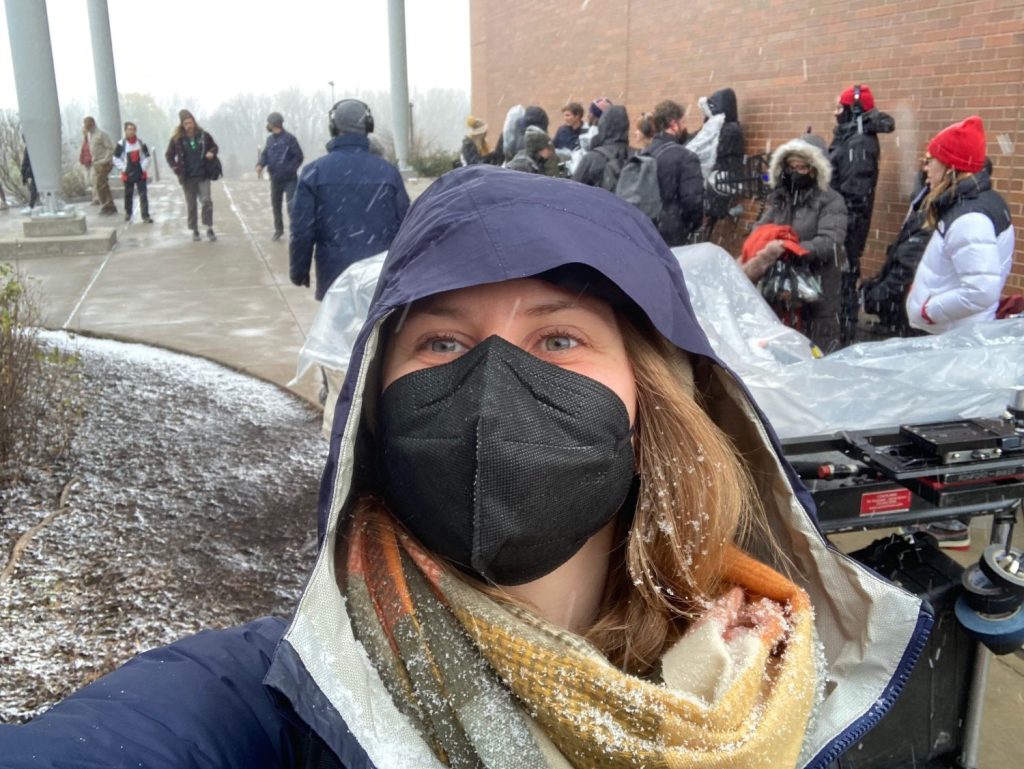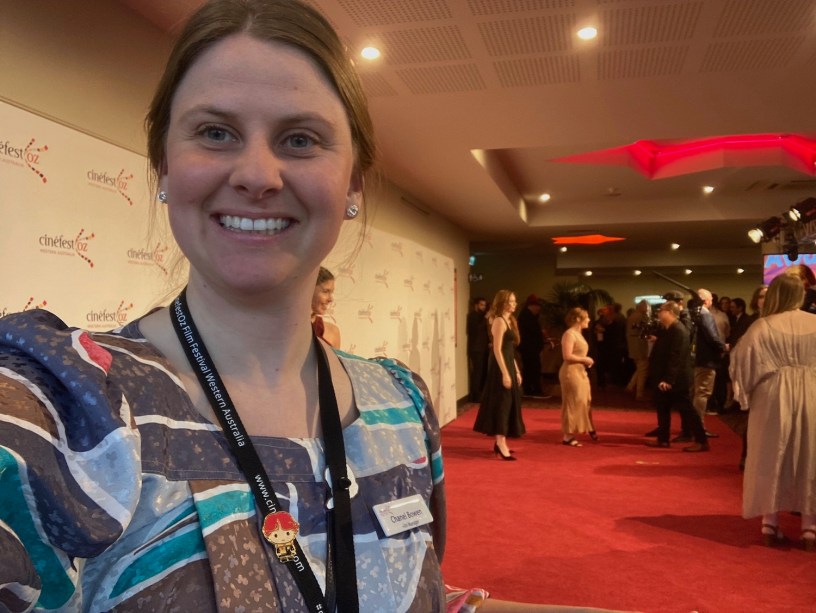This is the tale of two producers. One who listened. One who talked.
Respected and experienced assistant director Chanel Bowen was excited and nervous about her return to work.
She’d had a catastrophic accident which led to a disability that needed significant recovery time. But, with some workplace adjustments, she was good to go back to work.
She got an attachment from a screen agency to observe on a feature film for almost three months, strongly supported by the departments she would be working with. After negotiating with the line producer, she travelled to the location, ready to start work the next day.
It wasn’t to be. And so she became one of those people referred to in the recent University of Melbourne report, Disability and Screen Work in Australia, who have experienced discrimination because of their disability.
“The producer got copied into an email chain where I outlined my access requirements. They were all on me. [For instance], I might have to take a taxi if I’ve taken a particular medication – quite simple things and all self-managed – [or need] flexibility on working days, given that I was observing, not working.
“And yet the producer said, ‘Let’s put a hold on this’.”
That hold lasted the entire job – with no explanation, no response to emails over the next three weeks. Finally, Bowen initiated a phone conversation that led nowhere.
“The screen body stepped in, saying I felt discriminated against because of my disability. The producer got nervous and called a mediated discussion. Two hours before it started, I got an email which said they were bringing their lawyer. I had no time to get my own legal counsel.”
Bowen claims the producer incorrectly said she was “a liability to insurance”, and that they “spoke over me, saying ‘I don’t discriminate’” through much of the discussion. They also declined offers Bowen initiated to attend Bus Stop Films Inclusion in Action courses.
So, on reading the results of the University of Melbourne survey, Bowen was surprised – not at the findings, but that there were not more disabled people reporting discrimination.
“I’ve taken on this role as an activist in film and TV for disability because I don’t want that kind of thing to happen to people. Nobody deserves that.
“It was a horrible experience and I actually regressed a lot of the work I’d put into managing my disability. The effect on my mental health was detrimental and I had to start taking additional medication as a result. And I never got on to that job.”
But those who know Bowen won’t be surprised at what happened next. She got a job as an AD – again, with the support of the department, this time with an entirely different outcome.
The film was Blueback and the producer James Grandison from Arenamedia. Everything went entirely differently.
“I felt it was important I disclosed who I was and what I needed to the producer so my boss, the first AD, organised that meeting by phone.
“James was incredible. He listened to what I needed and I offered to see him face-to-face if he needed to know more.
“He said, ‘No, Chanel, I feel like you’ve told me enough and I want you to tell me when you need something during the job, we’ll just take it like that.’
“And the times when I did need something on that job, not only was there a person there to administer it – a nurse or a runner to transport me, but James turned up every time. He stood back respectfully and let things occur.”
Bowen recalls chatting to director Robert Connolly as they waited for a boat on the shoot.
“He asked about a bad day I was having and I told him why. He said some incredible stuff, [like] ‘I’m so proud that this is your first job back in film and TV’. He said I was doing an amazing job. And he hadn’t previously known about my disability because these producers were inclusive but respectful.
“I was so happy to have that experience because it was the best and it gave me my confidence back.
“The main difference between the two jobs was, while I was having the same conversations with both producers, one producer was listening and one producer was only speaking.”
Bowen, who recently returned from Hollywood after a two-month screen development internship through Screenworks, has plans to make that experience the norm. ‘

She has been funded by Screenwest to create a job description, training and costing for the role of access and inclusion co-ordinator on productions with Bus Stop Films, on the same mould as a safety supervisor.
“It’s available in North America but it’s not known about in Australia.”
And she welcomes an upcoming eLearning project called the Disability Justice Lens, developed and produced by A2K Media, which is aimed at employers.
“Educating people is incredibly important. And the capacity to self-educate right now is ridiculously easy. Everybody who’s on TikTok or Instagram, you can flick through and someone teaches you something new. I learn about disability language, the correct race language and queer identities I wasn’t aware of.
“There’s just no excuse for not learning more.”
Denise Eriksen is co-founder of Media Mentors Australia, consulting to A2K on the Disability Justice Lens project.


